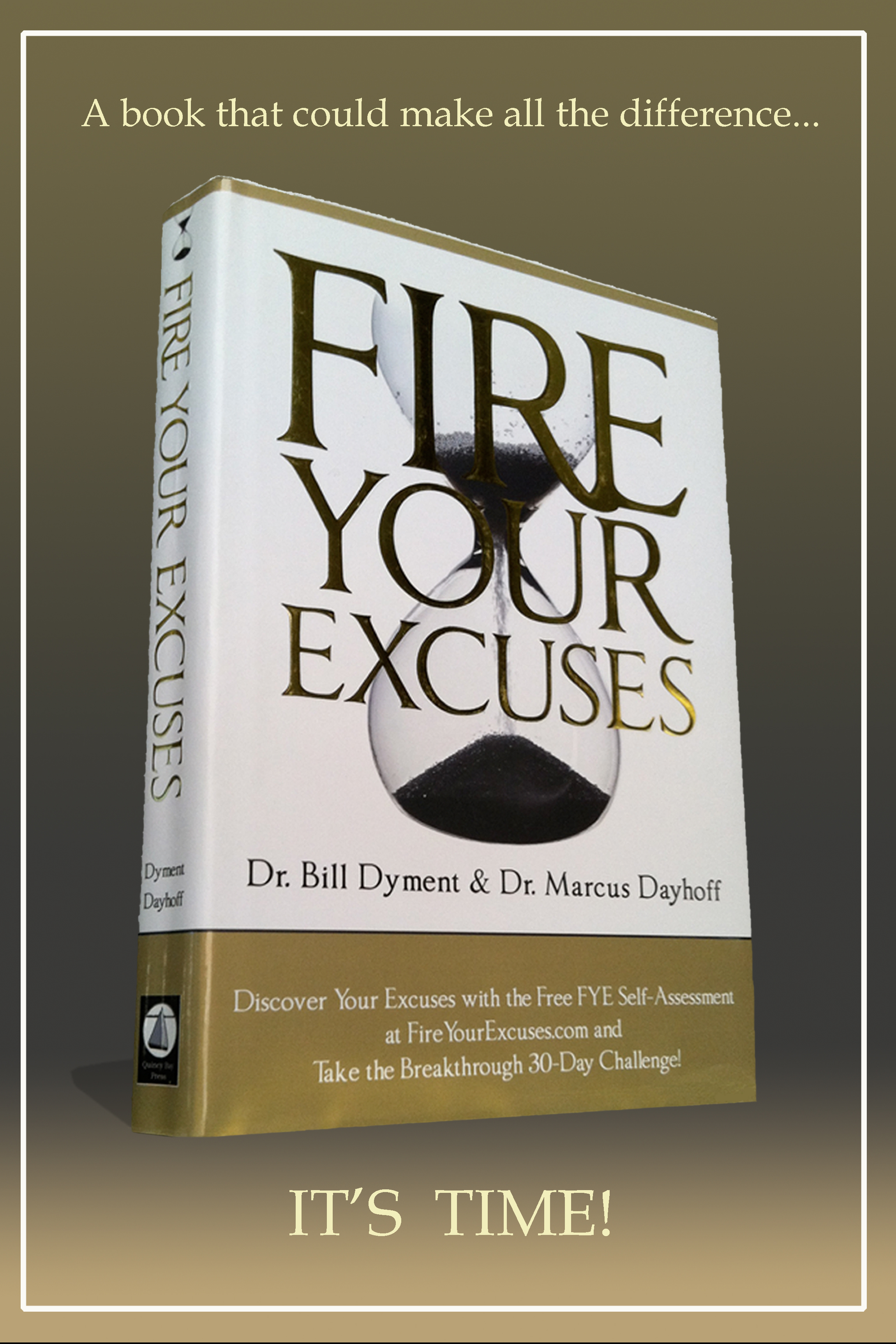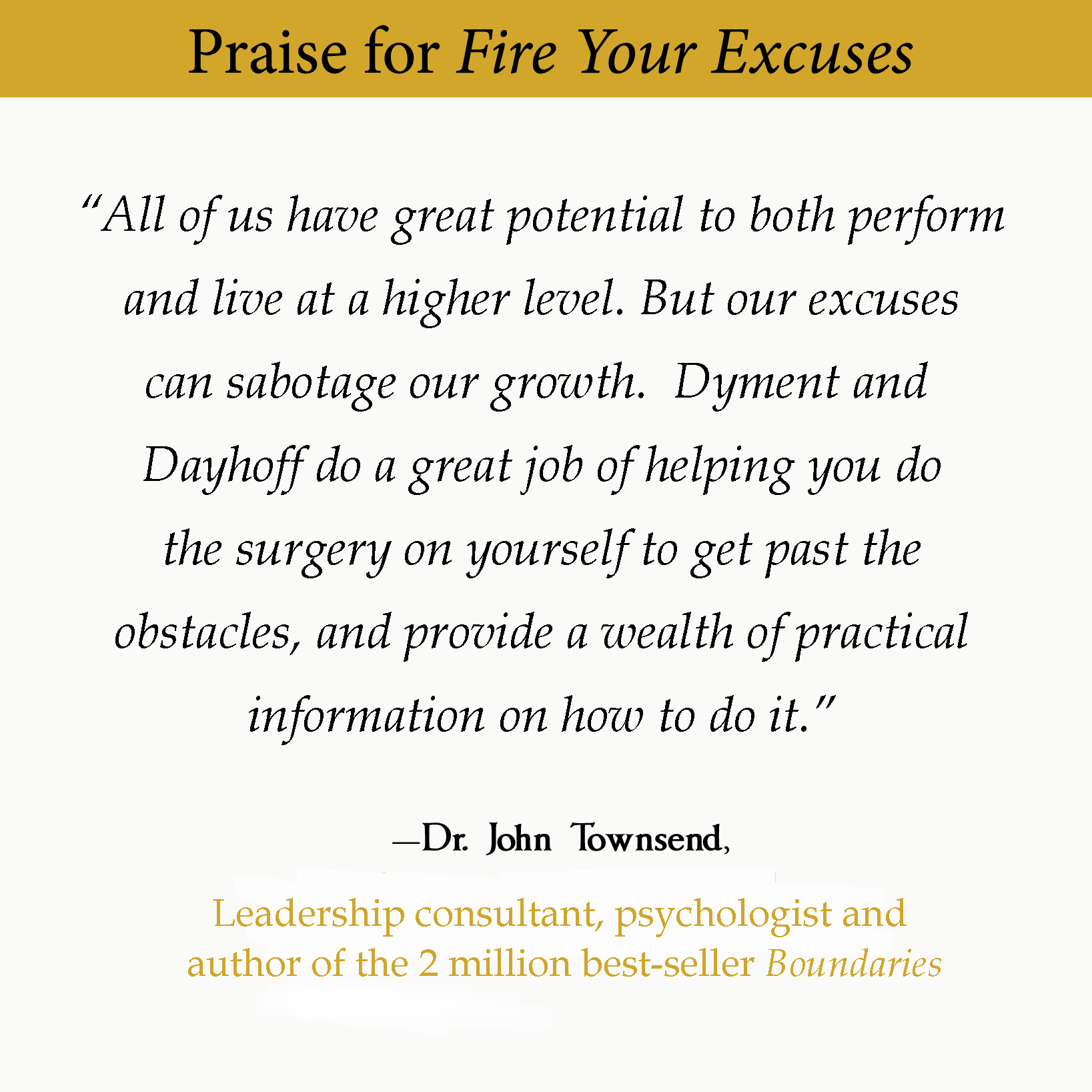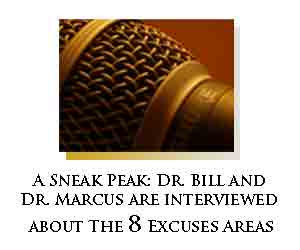 Excerpted from Fire Your Excuses
Excerpted from Fire Your Excuses
Walking the “Last Mile of Denial”
After decades of weight-loss research, the results are in: We lose weight when we consume fewer calories than our body needs each day! If you consume a few calories less than you need, you will lose weight. The key is determining your unique calorie needs, given your activity level and metabolism, and sticking to it.
Many of the so-called revolutionary (in other words, fad) diets are little more than a glitzy repackaging of this simple principle—eat fewer calories than your body needs. One popular commercial, for example, pushes a “special clinically proven weight loss pill,” but in the finest of small print it also mentions that subjects lost 3.8 pounds over eight weeks while taking their “secret formula,” eating a sensible diet and exercising. Incredible! Nearly anyone could lose 3.8 pounds if he or she exercised frequently and ate healthy for two straight months!
But if weight loss is so simple, where do we all go wrong? It is in execution and discipline, of course. We find it difficult to accept and even more difficult to follow the math of calorie intake. We tend to get part of the formula right—maybe exercise or nutrition—but ignore the other part, usually our calorie count.
Think for a moment about the effect of doing several important things right but ignoring a critical action needed for success. The results, especially if you have put in a lot of effort to get things right, might be very disappointing and costly.
Imagine going on a long awaited summer vacation, and 1) locking the front door, 2) locking the back door, but 3) leaving a basement entrance unlocked. Despite your efforts, you could still be robbed blind. We call these “number three” actions—whether locking that final door or window, or taking that final step toward living within a written budget or diet—walking the last mile of denial. It is only when we are willing to ‘walk the last mile of denial’ and face up to our remaining ‘hold-out’ actions and oversights that we can hope to achieve lasting, permanent change.
Walking the Last Mile in Real Life
Here are just a few examples of walking the last mile of denial.
Financial Honesty
You take the “final step” to address your financial excuses by …
- Investing $35 for a simple accounting software program so you can finally track your spending.
- Sitting down with a financial planner or tax accountant, hiding nothing and asking for help.
- Creating and following a budget using your new software.
Medical Issues You take the “final step” to address your health excuses by …
- Calling your specialist to schedule that scary follow-up test, the one you’ve been putting off.
- Deciding you will no longer buy large amounts of sweets “for the kids.” You know you’re the one who raids the kitchen for ice cream or cookies after others are asleep.
Compulsive Behaviors
You take the “final step” into full recovery by …
- Seeking out a weekly meeting to address a compulsive behavior you have not been able to eradicate on your own.
- Breaking the silence by telling someone close to you that you need help with a secret struggle.
Emotional Issues
You take the “final step” needed to resolve your emotional hurts and avoidant behavior by …
- Investing in some long overdue counseling to address what your friends have been pointing out for years— your tendency to shy away from closeness because of past hurts.
- Joining a small group of supportive peers because you know it will help with your mood, motivation, or a tendency to isolate under stress.
Spiritual Growth Areas
You take the “final step” in exploring your spirituality by …
- Admitting that you have been running away from your spiritual roots by using excuses that don’t really hold up to scrutiny.
- You make arrangements to reconnect by accepting the invitation of a friend to attend a retreat in two weeks.
- Realizing that you haven’t been a part of a service organization for over five years, you finally decide to volunteer for at least one serving opportunity this month.
If you have been unable to make progress toward a coveted goal, there’s a good chance a blind spot or known weakness is holding you back. We encourage you to reach out and receive the help you need. We can help you with professional coaching, you can get into counseling or a group, or begin to reach out to those you trust. The last mile is the mile that changes everything.












 Fire Your Excuses™ is delighted to be able to support World Vision’s Well Projects by donating 10% of all gross income to assist the people of Malawi, Africa, with clean water. When you enroll in a Fire Your Excuses™ coaching program, attend one of our seminars, or order our book, you are also giving the gift of life—fresh water to needy communities in Malawi, Africa, the world’s sixth poorest country.
Fire Your Excuses™ is delighted to be able to support World Vision’s Well Projects by donating 10% of all gross income to assist the people of Malawi, Africa, with clean water. When you enroll in a Fire Your Excuses™ coaching program, attend one of our seminars, or order our book, you are also giving the gift of life—fresh water to needy communities in Malawi, Africa, the world’s sixth poorest country.